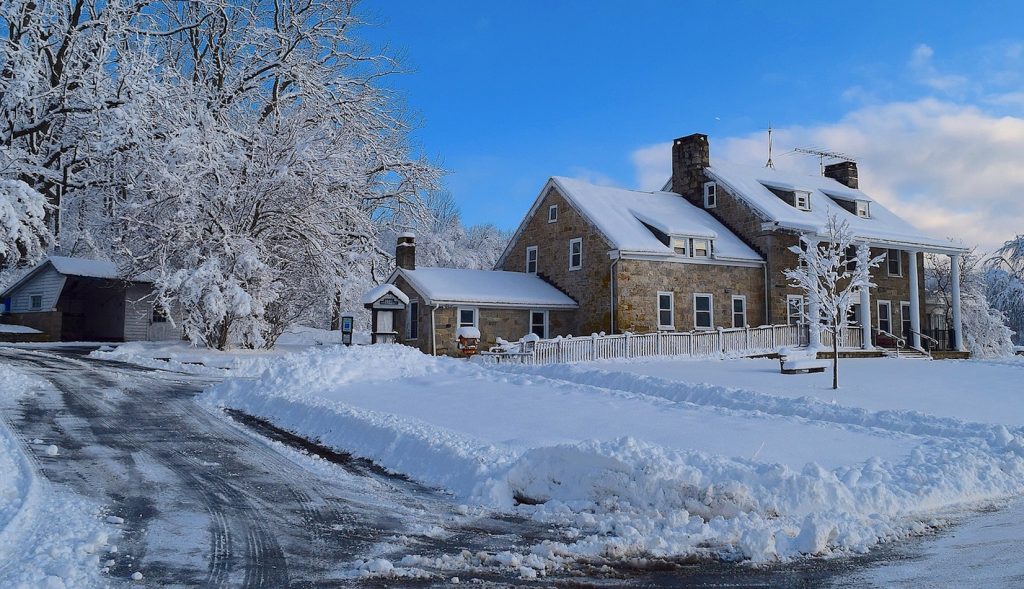Holes
Perhaps one of the first things you will notice when winter begins to affect your asphalt driveway is a series of cracks and holes. These weaken the driveway overall and can lead to potholes. How does this happen? Simple precipitation. The snow and ice melt, seeping into cracks in your driveway. As the temperatures drop, and the ice expands, the cracks in your driveway worsen considerably. In many cases, it can lead to potholes, and entire chunks can break off.
To Salt or Not to Salt?
There is conflicting advice regarding adding salt or deicers to your driveway. A sealed driveway is better protected than an unsealed blacktop. In either case salt and deicers can potentially crack your driveway. This is especially true while plowing and shoveling snow. The deicers and salt can even weaken the sealant, leading to cracks and potholes that can damage your car’s tires and suspension.
Driveway Sensors Fail
For homeowners that have electronic security systems in place, maintaining driveway sensors and other electronics is important during winter weather. The cold winter can affect battery strength, making it difficult for your sensors to detect incoming vehicles and visitors. By looking ahead to how winter affects your driveway sensors, you can make sure that your sensors are placed in areas that are in full sun during the winter or in weather-resistant casings.
Shoveling
Surprising enough, you might be the one most likely to inflict damage on your asphalt driveway by using metal shovels and snow blowers. These can damage your driveway considerably if not kept at least a half inch above the blacktop. Waiting too long before shoveling can also be an issue, leading to problems like ice melting and refreezing flush to the driveway.
Be prepared for winter by making sure that you have repaired your driveway before the temperatures drop. Add sealant for an extra coat of protection. Minimize use of salt and deicers. And be sure to use driveway-safe tools to remove snow like plastic shovels.










